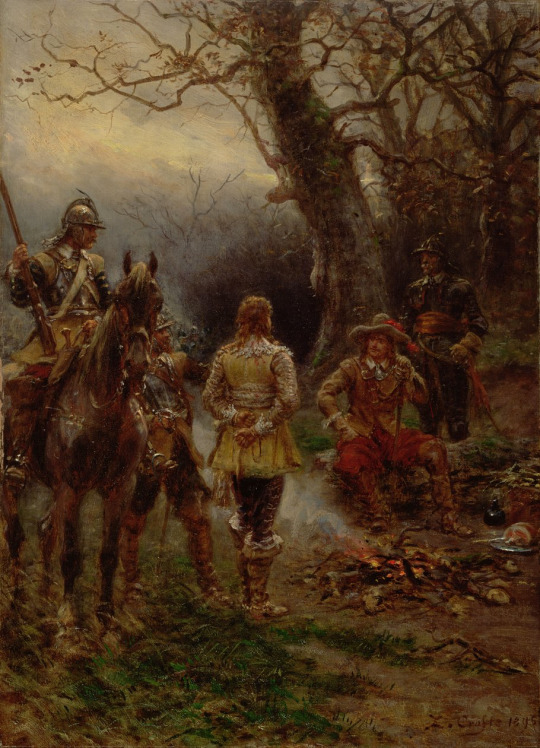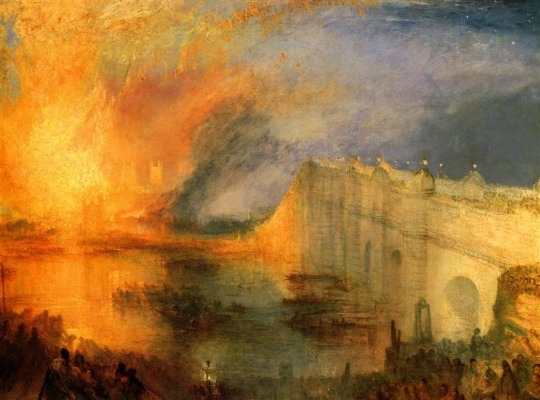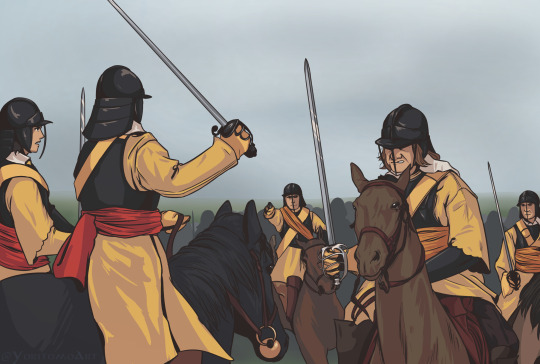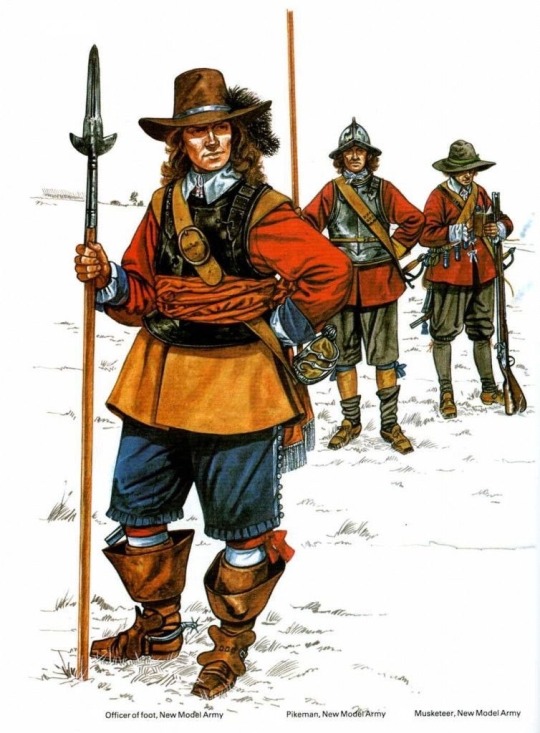#English parliament
Text
the fact that shakespeare was a playwright is sometimes so funny to me. just the concept of the "greatest writer of the English language" being a random 450-year-old entertainer, a 16th cent pop cultural sensation (thanks in large part to puns & dirty jokes & verbiage & a long-running appeal to commoners). and his work was made to be watched not read, but in the classroom teachers just hand us his scripts and say "that's literature"
just...imagine it's 2450 A.D. and English Lit students are regularly going into 100k debt writing postdoc theses on The Simpsons screenplays. the original animation hasn't even been preserved, it's literally just scripts and the occasional SDH subtitles.txt. they've been republished more times than the Bible
#due to the Great Data Decay academics write viciously argumentative articles on which episodes aired in what order#at conferences professors have known to engage in physically violent altercations whilst debating the air date number of household viewers#90% of the couch gags have been lost and there is a billion dollar trade in counterfeit “lost copies”#serious note: i'll be honest i always assumed it was english imperialism that made shakespeare so inescapable in the 19th/20th cent#like his writing should have become obscure at the same level of his contemporaries#but british imperialists needed an ENGLISH LANGUAGE (and BRITISH) writer to venerate#and shakespeare wrote so many damn things that there was a humongous body of work just sitting there waiting to be culturally exploited...#i know it didn't happen like this but i imagine a English Parliament House Committee Member For The Education Of The Masses or something#cartoonishly stumbling over a dusty cobwebbed crate labelled the Complete Works of Shakespeare#and going 'Eureka! this shall make excellent propoganda for fabricating a national identity in a time of great social unrest.#it will be a cornerstone of our elitist educational institutions for centuries to come! long live our decaying empire!'#'what good fortune that this used to be accessible and entertaining to mainstream illiterate audience members...#..but now we can strip that away and make it a difficult & alienating foundation of a Classical Education! just like the latin language :)'#anyway maybe there's no such thing as the 'greatest writer of x language' in ANY language?#maybe there are just different styles and yes levels of expertise and skill but also a high degree of subjectivity#and variance in the way that we as individuals and members of different cultures/time periods experience any work of media#and that's okay! and should be acknowledged!!! and allow us to give ourselves permission to broaden our horizons#and explore the stories of marginalized/underappreciated creators#instead of worshiping the List of Top 10 Best (aka Most Famous) Whatevers Of All Time/A Certain Time Period#anyways things are famous for a reason and that reason has little to do with innate “value”#and much more to do with how it plays into the interests of powerful institutions motivated to influence our shared cultural narratives#so i'm not saying 'stop teaching shakespeare'. but like...maybe classrooms should stop using it as busy work that (by accident or designs)#happens to alienate a large number of students who could otherwise be engaging critically with works that feel more relevant to their world#(by merit of not being 4 centuries old or lacking necessary historical context or requiring untaught translation skills)#and yeah...MAYBE our educational institutions could spend less time/money on shakespeare critical analysis and more on...#...any of thousands of underfunded areas of literary research i literally (pun!) don't know where to begin#oh and p.s. the modern publishing world is in shambles and it would be neat if schoolwork could include modern works?#beautiful complicated socially relevant works of literature are published every year. it's not just the 'classics' that have value#and actually modern publications are probably an easier way for students to learn the basics. since lesson plans don't have to include the#important historical/cultural context many teens need for 20+ year old media (which is older than their entire lived experience fyi)
24K notes
·
View notes
Text
Ive not seen it talked about on here yet but laws around hrt for under 18s in the uk has changed
They have banned all hrt for under 18 year olds in the uk, nhs or private services. This was put in place without any vote on the subject, The government has done this because of the Cass report's release
It was put into effect on june 3rd but no news media so far (to my or my friends knowledge) has covered it. I only just found this out by one of my friends, who is currently 17 but is turning 18 a week after they were supposed to get hrt but it has been blocked from him because he is still under 18.
I know i have like no reach on this platform but i think this deserves to atleast be known
I will put a tiktok of finnster talking about it and how it affects their charity work here, because they know more about this than i do and can explain it better than i can (link to original tiktok)
I wont force you to but i beg you to reblog because the fact i hadn't heard about this until now is crazy!
#uk politics#trans#lgbt#trans politics#scotland#scottish politics#english politics#welsh politics#uk parliament
210 notes
·
View notes
Text

Oliver Cromwell Questioning a Prisoner by Ernest Crofts
#oliver cromwell#art#ernest crofts#english civil war#england#prisoner#cavalier#royalist#roundheads#royalists#parliamentarians#parliamentarian#cavaliers#history#war#britain#europe#english#british#civil war#parliament#monarchy#fire#camp#campfire
140 notes
·
View notes
Note
How did Henry Viii manage to get so many things passed in parliament? From the desolation in monasteries, things for the poor, and succession
Because Thomas Cromwell was a very, very good early modern Parliamentary manager who knew how to put together slates of candidates and get them elected, how to draft cleverly worded legislation and build one law on top of the next to achieve an overall result, how to bribe and coerce people into voting the right way.

For example, Cromwell invented the practice of voting by division; previously, Parliament had functioned entirely on voice votes that allowed MPs and Lords way more deniability both in their individual votes and the overall vote of the body. Divisions meant that MPs and Lords who wanted to vote against the government would have to openly declare themselves as opponents of the king - and that was bad for your career and general well-being.
It didn't always work - see the Poor Law bill of 1536 - but his batting average was impressively high.
58 notes
·
View notes
Text
Within this broader condemnation of [Alice Perrers'] behaviour, a number of specific themes can be identified. These include sexual immorality, political influence, and [...] numerous and repeated references to greed and avarice. This is particularly striking in two literary representations which may have been inspired by Alice: Chaucer’s Wife of Bath and, most compelling, William Langland’s Lady Meed in his allegorical poem Piers Plowman, a character whose name has become a byword for venality. Meed, like Alice, established her presence at the royal court and acted as a counsellor to the king, but was eventually banished on accusations of being a whore and undermining the workings of law and justice. In particular, in introducing Meed to his audience, Langland describes her hands as covered with rings of the “purest perreize,” a word meaning precious stones or jewels, which would seem to be a play on Alice’s surname, Perrers, and thus directly identifying her with Meed. Chaucer also notably named the wife in the Wife of Bath Alisoun, raising the possibility that she was in part based on his direct contemporary Alice Perrers. The Wife had a husband named Jankyn, similar to the name of Alice’s first husband, Janyn, and was a businesswoman with a mercantile and urban background, echoing Alice’s own early life in London. The Wife was notoriously prolific in her lustful desires, but invariably they had a financial motivation, fusing, in the words of Paul Strohm, “the categories of economic and sexual assertiveness into a single epitome of contemporary male dread.”
-Laura Tompkins, '"Edward III's Gold-Digging Mistress": Alice Perrers, Gender, and Financial Power at the English Royal Court, 1360-1377", "Women and Economic Power in Premodern Courts" (edited by Cathleen Sarti)
#historicwomendaily#alice perrers#english history#edward iii#my post#geoffrey chaucer#to be clear 'being inspired by' doesn't mean 'being a direct analogue of'#so we obviously shouldn't (and Tompkins doesn't) look at it through that angle#also just to clarify - Langland's 'Lady Meed' is a little more complicated.#as per our current understanding of the chronology of his writing:#his 'A text' of Piers Plowman was most likely written in the late 1460s - almost a decade before the parliamentary proceedings against Alic#and thus cannot have been based purely on her but on a wider 'discourse of defamation focused on “problem” women' as Ormrod puts it#HOWEVER we know that Langland redrafted and massively edited the B and C texts from the book much later#and as Matthew Giancarlo and Gwilym Dodd have pointed out there are clear indications he was specifically influenced by Alice's#encounters with Parliament in the 1470s when it came to these texts#also forever loling at Chaucer naming The Wife 'Alisoun' and giving her a husband named Jankyn lmfao#that's hilariously on the nose#but also if they truly were inspired by Alice that's such an epic slay on her part#icon
16 notes
·
View notes
Text

Tracklist:
Mr. Blue Sky • Fox On The Run • Lake Shore Drive • The Chain • Bring It On Home To Me • Southern Nights • My Sweet Lord • Brandy (You're A Fine Girl) • Come A Little Bit Closer • Wham Bam Shang-A-Lang • Surrender • Father And Son • Flash Light • Guardians Inferno
Spotify ♪ YouTube
#hyltta-polls#polls#artist: various artists#language: english#decade: 2010s#Film Soundtrack#Pop Rock#Disco#Soft Rock#Soul#artist: electric light orchestra#artist: sweet#artist: aliotta haynes jeremiah#artist: fleetwood mac#artist: sam cooke#artist: glen campbell#artist: george harrison#artist: looking glass#artist: jay & the americans#artist: silver#artist: cheap trick#artist: cat stevens#artist: parliament#artist: the sneepers#artist: david hasselhoff
11 notes
·
View notes
Text


J.M.W. Turner, The Burning of the Houses of Parliament, 1834
J.M.W. Turner, The Burning of the Houses of Parliament, 1835
#jmw turner#english artist#english art#english painter#English painting#cityscape#urban landscape#parliament#British parliament#fire#aesthetic#beauty#art history#art aesthetic#aesthetictumblr#tumblraesthetic#tumblrpic#tumblrpictures#tumblr art#art on tumblr#beautiful painting
31 notes
·
View notes
Text
William Coningham circa 1868


In 1839 the writer Thomas Carlyle described William as a "very tall, very lean, dyspeptical, gentlehearted, rich and melancholic man."
74 notes
·
View notes
Text
The Clash at Naseby

The battle of Naseby was a decisive battle during the war and was the battle that show the effectiveness of the parliamentary New Model Army. However, my drawing isn't depicting that, but the clash at the parliamentary right between the Ironsides led by Oliver Cromwell and the royalist cavalry. The Ironsides managed to break the royalists cavalry and then charge the rear of the royalist infantry, wining the battle.
As an interesting fact, the left led by Henry Ireton didn't have a lot of luck and were put to rout by Prince Rupert's cavalry, but the latter decided to plunder the parliamentarian baggage train instead of attacking the infantry. At the time they returned to the battlefield, Charles I had ordered the retreat.
If you have trouble in telling who is who, just remember that the parliamentarians used orange sashes and the royalists red ones. And yes, I copied the Ironside with the pistol from an illustration made by Graham Turner. I needed a guy there and didn't knew what to do...
#armor#art#war#civil war#english civil war#english#england#parliament#17th century#cavalry#clash#history#historical art#history art
19 notes
·
View notes
Text

On 17 February 1645 the English Parliament passed an ordinance creating a 'New Modelled Army' of 22,000 men on a national basis. This army won the British Civil Wars for Parliament, became a political power & nucleus of the modern British Army.
#history#british army#military history#17th century#civil war#English civil war#English civil wars#Cromwell#Oliver Cromwell#new model army#Parliament
45 notes
·
View notes
Text
23rd December
The Year They Cancelled Christmas

Source: schools-history.com
On this day in 1652, the so-called “Rump Parliament” of the English Commonwealth, dominated by austere Puritans under the watchful eye of Oliver Cromwell, issued an ordnance to ban the Christmas holiday. Having already got rid of celebrations the Puritans deemed as having pagan origins, with particular reference to May Day, they then turned to Christmas. The ordnance declared ‘No Observation shall be had of the five and twentieth day of December, commonly called Christ-mass Day.’ Enforcement was not easy amongst a population already wearying of the joyless rule of the Commonwealth. Riots broke out in towns where Roundhead officers attempted to remove greenery from churches and other public places. However Parliament, backed by the no-nonsense force of the New Model Army, had their way and the twelve day festival disappeared from England for eight years, and was never restored to its medieval glory.
Christmas was reclaimed in 1660 when the Commonwealth fell and Charles II finally regained his throne. Although this must be considered a good thing, it is a shame some of the alternative names for the Day the Puritans came up with are no more. These include gems such as: The Old Heathens’ Feasting Day, Multitude’s Idle Day and, my favourite, Satan’s Working Day.
#english history#the year they cancelled Christmas#the English commonwealth#the rump Parliament#oliver cromwell#puritanism#Satan’s working day
5 notes
·
View notes
Text

Oliver Cromwell (1599-1658)
#communism#marxism#socialism#leftism#leftist#communist#marxist#socialist#anti capitalism#dismantle capitalism#feudalism#feudal#england#english history#english civil war#war of the three kingdoms#parliament#cromwell#cromwellian#oliver cromwell#lord protector#republican#republicanism#anti monarchy#antimonarchy#anti monarchist#antimonarchist#karl marx#lenin#leninist
2 notes
·
View notes
Text
#OTD in 1366 – The parliament, alarmed at the apparent undermining by native influences of the settler population’s Englishness, passed the ‘Statutes of Kilkenny’.
The Statutes of Kilkenny were a series of thirty-five acts passed at Kilkenny in 1366, aiming to curb the decline of the Hiberno-Norman Lordship of Ireland.
This aims to halt the widespread adoption by the Norman-Irish, especially in frontier areas, of Gaelic Irish culture, customs and language. It bans the use of the Irish language (insisting ‘that every Englishman use the English language’,…

View On WordPress
#35 Acts#English#French#Gaelic#Hiberno-Norman Lordship#Irish#Irish Minstrels#Kilkenny#Kilkenny Castle#Language#Norman-Irish#Parliament#Sports#Statutes of Kilkenny
6 notes
·
View notes
Text
henry pelham 🤝 john gray
loyalist-leaning residents of my city in the mid-to-late 18th century who i find very compelling but when i try to research anything about them, i have to wade through articles repeating the same information about the boston massacre over and over.
#messages from the ouija board#sadies day job#cant keep johnny down 1771 edition#i should have a weird tag like that for henry also#i dont agree w like. monarchism. or the political leanings of 1770s english parliament. but#theres so many boston tories who were just like. specific sons of liberty suck so bad and i hate them. i want them to stop.#and i get it! i understand how one could look at sam adams and john hancock and be like#i dont want these guys in charge and i cant fucking support them#neither of them were even at the massacre btw. john gray's employees were involved in the original brawls earlier that week#and henry pelham drew the original image that revere engraved thats like. the one in all the textbooks#so theyre each mentioned like once in any given article#squirrel boy
4 notes
·
View notes
Note
How powerful was the Parliament in England over the Medieval period? I presume that it varied a bit over Kings but how much leeway did they have with blocking the Kings, without thinking that he might just send his troops out against their wishes?
It could be quite strong - Simon de Montfort's Parliament of 1265 overthrew the monarchy in all but name and threatened to completely restructure feudalism itself; the Good Parliament of 1376 impeached several royal councilors, imposed new ministers on the King, and even the King's mistress.
That being said, it was extremely risky for Parliament to challenge the King - Peter de la Mare, the first speaker of the Commons elected by the Good Parliament, was thrown in prison, and Bishop William of Wykeham (one of those new ministers) was targeted for legal retaliation, at the hands of John of Gaunt.
17 notes
·
View notes
Text
Fun fact: after her trial in 1377, Alice Perrers went into hiding for two years and the government straight-up had no idea where she was.
#not a shitpost this actually happened#The 1378 parliament makes it clear that her whereabouts were genuinely unknown at that time#She was probably in one of Wyndesore's properties in the countryside#alice perrers#my post#english history#14th century#queue
9 notes
·
View notes